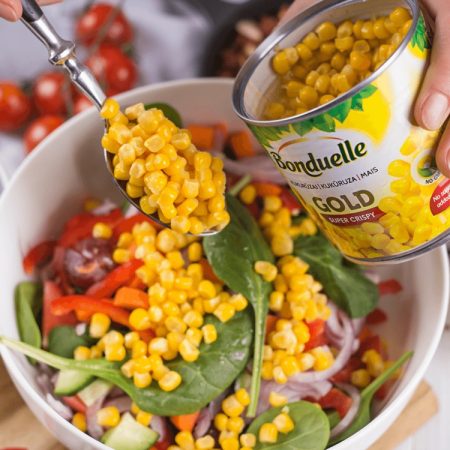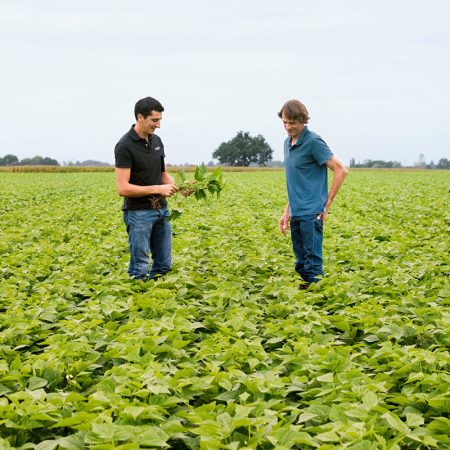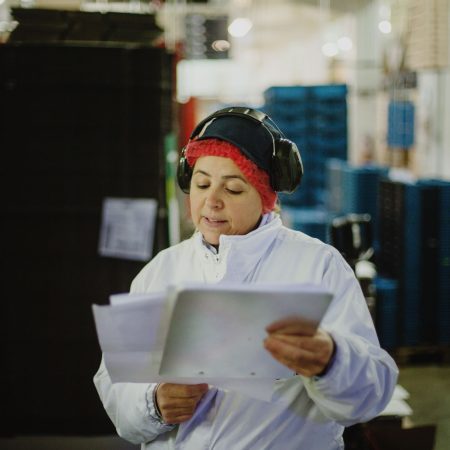Our story
Our history... is no recent occurrence! It has been nearly 170 years since we began working hand in hand with nature to feed people and provide them with the best it has to offer. In 170 years, everything has changed. New locations, technological advances, decisive turning points: we have surged forward. And yet, nothing has changed. We remain firmly rooted in the land, while carefully cultivating our entrepreneurial spirit. From Louis Bonduelle's first steps in entrepreneurship to our commitment to the plant revolution, dive into the Bonduelle adventure.
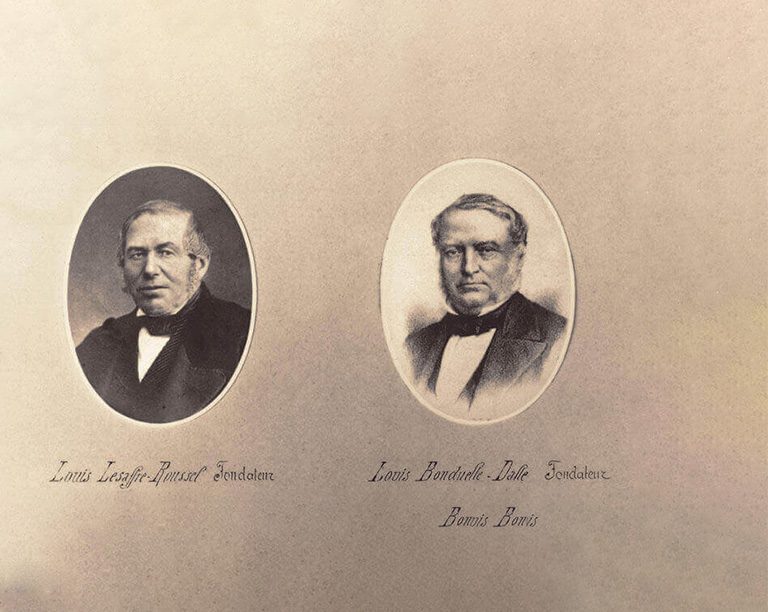
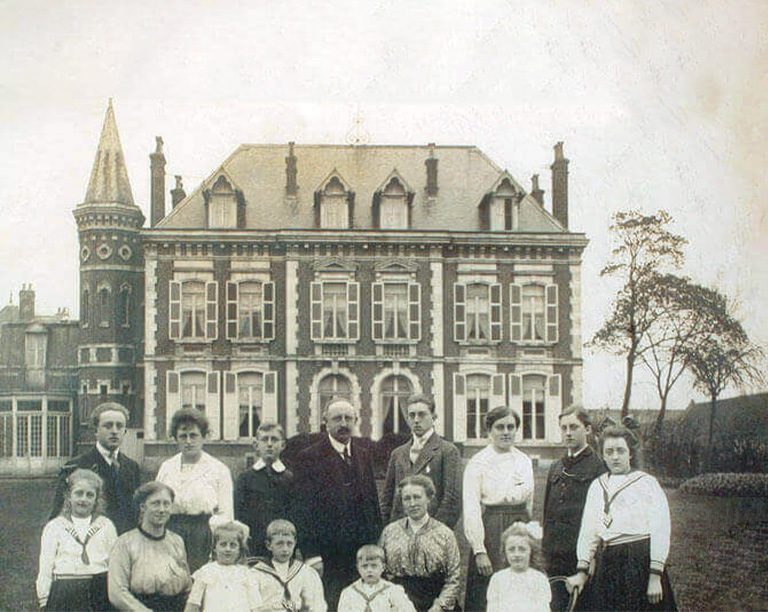
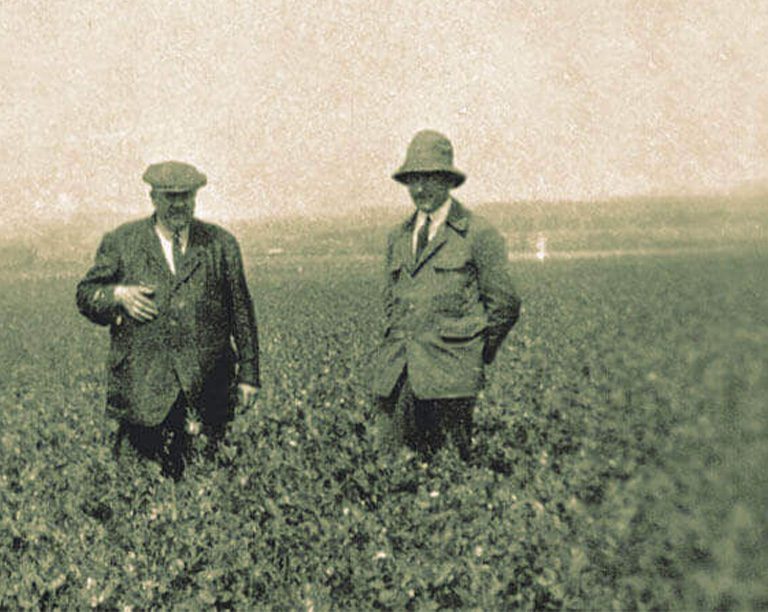
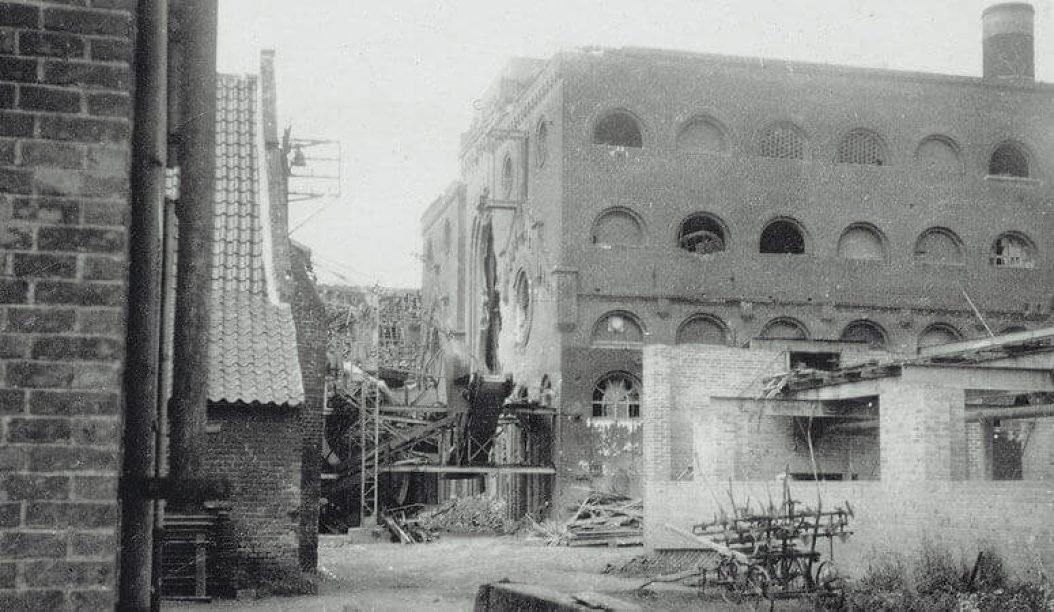
This was when Louis-Antoine Bonduelle joined forces with his friend Louis Lesaffre-Roussel to found a grain and juniper distillery.
This distillery, named "Lesaffre et Bonduelle, Alcools de l'Abbaye", was located in the North of France (in Marquette-lez-Lille). An adventure was about to begin.
The two partners bought an isolated farm, a former abbey, in the village of Renescure. It was surrounded by 76 hectares of land bordering the forest, on the border of Nord and Pas-de-Calais.
Through bold investments, the company quickly prospered. In 1888, their successors – brothers and brothers-in-law – grew the business.
In Renescure (Northern France), the cradle of the company, Pierre and Benoît Bonduelle converted a disused barn into a canning workshop – still a far cry from a plant – by installing a pea threshing machine, copper basins, a canning machine, a pedal crimper, etc.
In the spring, 16 hectares of peas were sown. In July, the very first "Bonduelle pea" campaign was completed, with 90,000 cans produced.
The cannery had 4 pea threshers and produced around 600 boxes of peas per day, or 1,000 tons per year. The war forced business to shut down. The farm buildings were requisitioned by the French army and the damage suffered during the war meant that the "canning" activity was unable to resume until 1945.
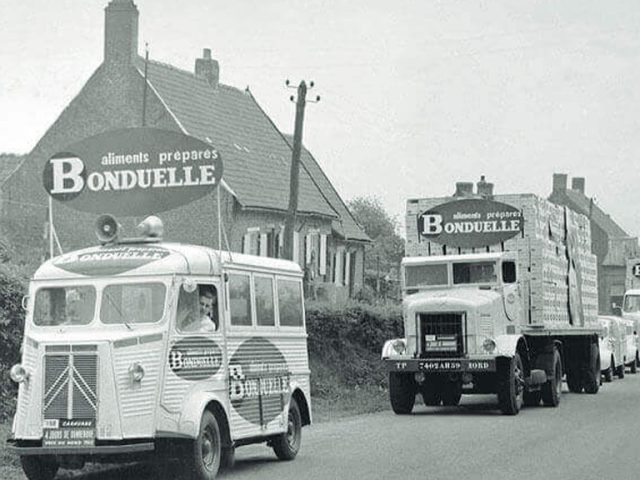
Bonduelle became a brand and business was good! From 1946, Bonduelle peas were still in the ground when orders were placed. In 1947, mock-ups were drawn up for printing on tinplate, and in July, Bonduelle branded cans found their way onto French shelves.
The first adverts appeared in the 1950s: on local team jerseys, blotters and trucks, messages proclaimed that "the best canned food is Bonduelle!"
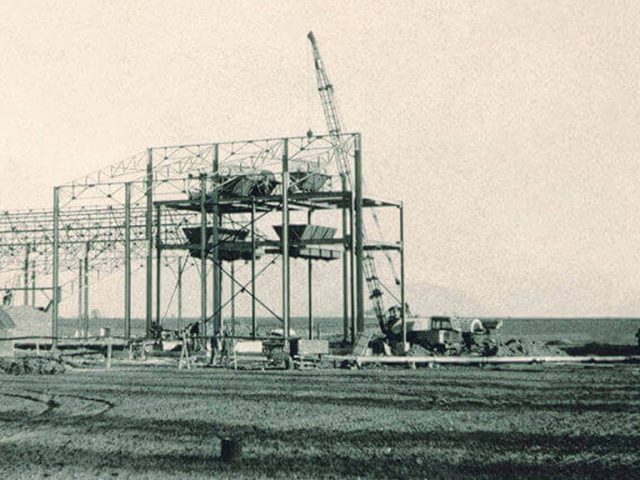
A new plant was built in Estrées, on a (first) 5-hectare site, next to the old unit. 600 hectares of peas were sown...
From then on, the plant continued growing: 25 years later, the Estrées site became the largest vegetable cannery in the world with its 200,000 m2 of covered space.
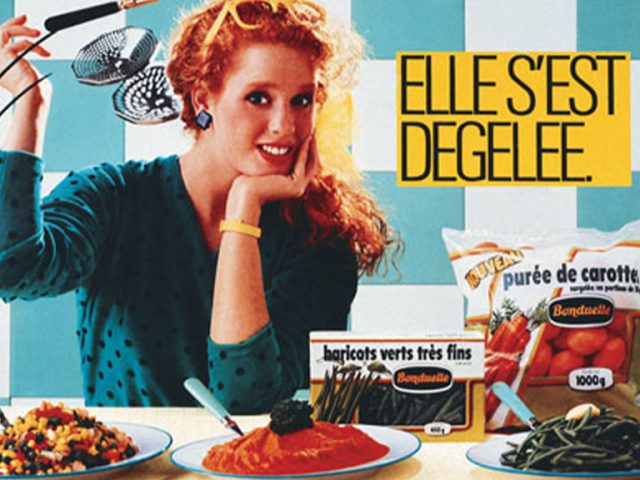
Very well known in the US, frozen vegetables were virtually unknown in France. At that time, a French wholesaler in local communities was looking for frozen peas to add to its range, and a box packing machine was installed at Bonduelle in Renescure. It was an immediate success.
Bonduelle invested in this field and a dedicated sales team has been engaged since 1968.
300 tons of frozen products were sold in 1969. Very quickly, a brand policy focused on out-of-home dining was implemented. Meanwhile, mass-market retailing would come later on…
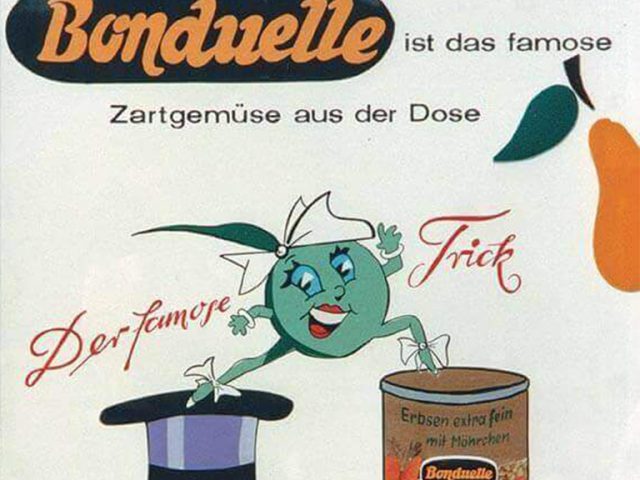
Creation of Bonduelle Germany (Bonduelle Gmbh) near Saarbrücken, one year after the Common Market opened. In 1985, the brand surpassed 100,000 tons of canned goods. The success of the German market opened the doors to Europe, leading to the creation of Bonduelle Italia (1972), Bonduelle Ltd (United Kingdom), Bonduelle Benelux, Bonduelle Espana (1986), Bonduelle Portugal (1988) and Bonduelle Danmark (1989).
Also in 1989, Bonduelle acquired the Cassegrain brand with the little white rabbit and integrated its sites in Picardy and the South West of France. At the same time, Bonduelle joined forces with two major cooperatives in the South West of France that produced sweet corn (Coop de Pau and Maïsadour) to build a plant in Bordères (Pyrénées-Atlantiques).
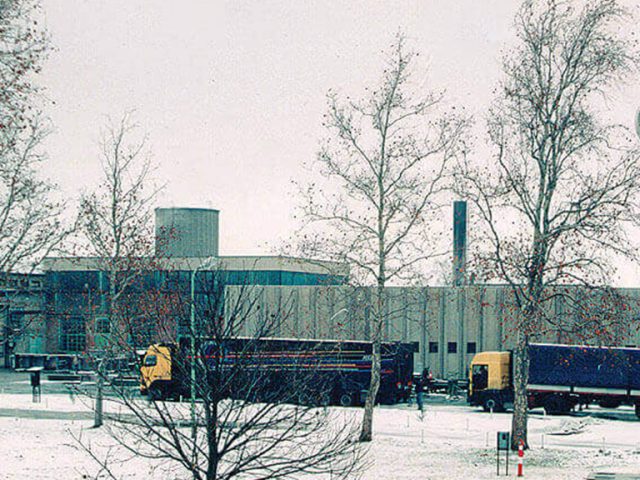
In 1990, Bonduelle Deutschland set up a sales force in the five new Eastern Länder, a few months after the fall of the Berlin Wall. A year later, Bonduelle Ceská Republika was born, followed in 1992 by Bonduelle Polska and Bonduelle Hungaria.
Two years later, Bonduelle continued to expand worldwide with the creation of Bonduelle Slovensko, Bonduelle Russia and Bonduelle do Brasil, on the other side of the hemisphere. In 1996, Buenos Aires welcomed Bonduelle Argentina.
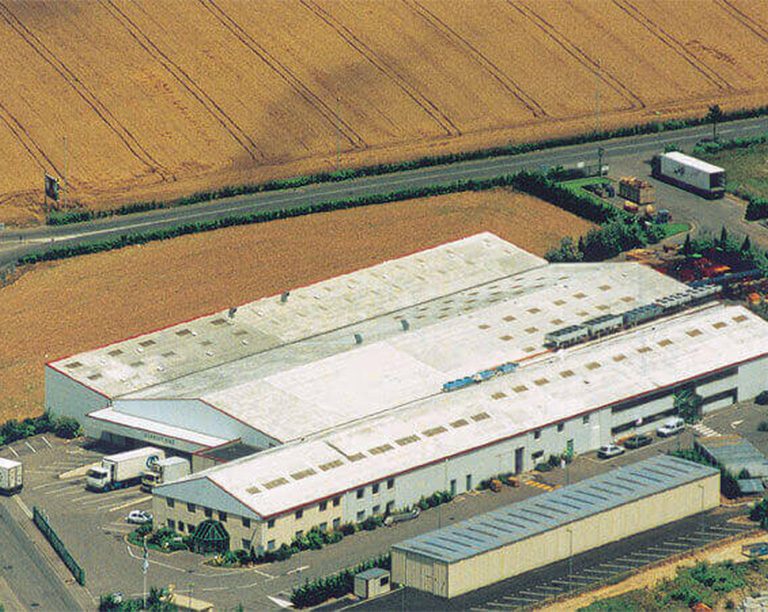
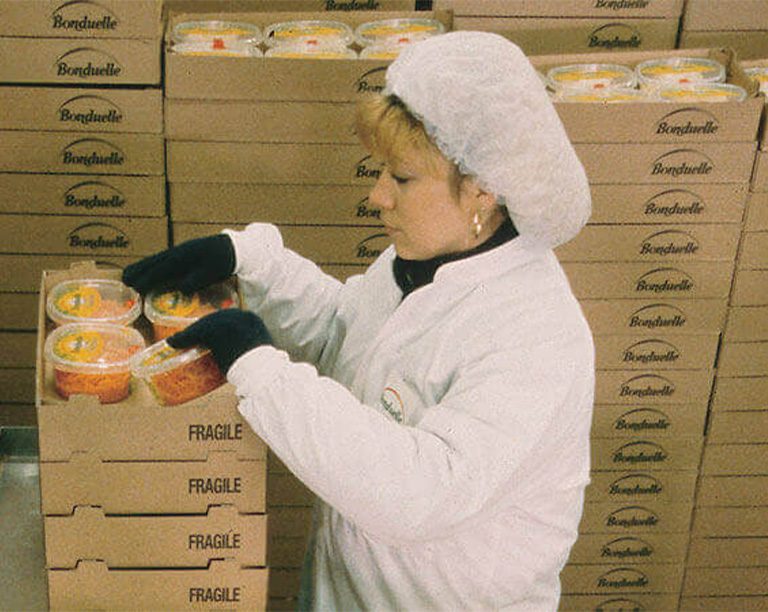
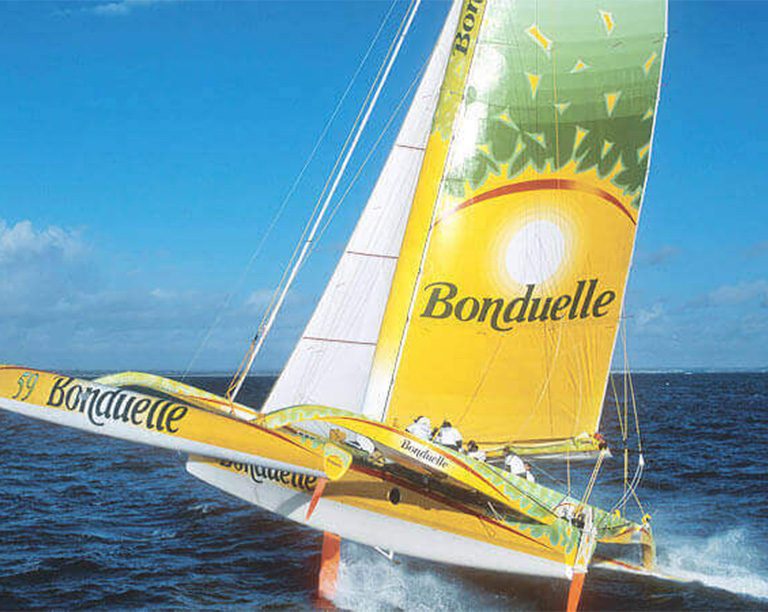
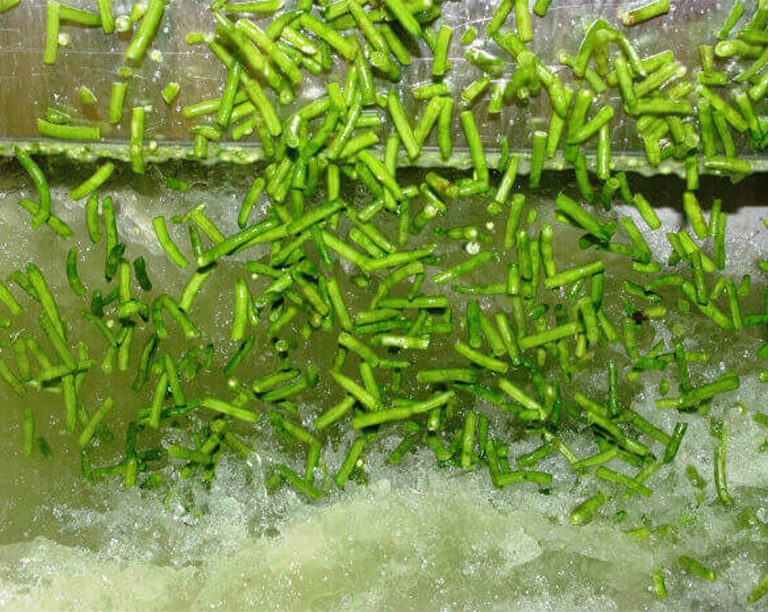
In 1997, Bonduelle signed agreements on the organization and reduction of working hours.
That same year, the group entered a new sector: Fresh products. Bonduelle took control of Salade Minute and four dedicated plants. This was a technological and strategic turning point as significant as that of frozen food in 1962 and corn in 1978.
June 26, 1998: the Bonduelle group is officially listed on the stock market for the first time. The company's flotation was facilitated by the arrival of a sixth generation of family executives and the creation in 1995 of a limited partnership approved by nearly all shareholders. Two years later, the share soared. For both the company and for governance, a historic shift came about.
1998 was not just the year of entering the stock market: it also marked the creation of Bonduelle Inc. in the US, in New Jersey, and the launch of the Bonduelle brand in Fresh products for the French public.
In Italy, the general public discovered the Bonduelle brand in Fresh products. In France, the skipper Jean Le Cam was chosen to be the skipper of the Bonduelle multihull. By becoming involved in sports sponsorship, Bonduelle highlighted the commonalities between the brand and the qualities needed to take to the sea: discipline, a sense of commitment, health, well-being, respect for nature and genuine humility in the face of its hazards.
Bonduelle reorganized as a federation of five subsidiaries: Bonduelle Frais, Bonduelle Grand Public, Bonduelle Food Service, Bonduelle Private Label and Bonduelle Development. Each one has its own balance sheets, operating accounts, dedicated plants and directors. At the same time, Bonduelle acquired Frudesa in Spain and its frozen food plant in Valencia. In Italy, the group merged with the number one Fresh products company in Italy, while in Germany Bonduelle Frishe (Fresh products) was created. Lastly, a Bonduelle sales office was set up in Ukraine.
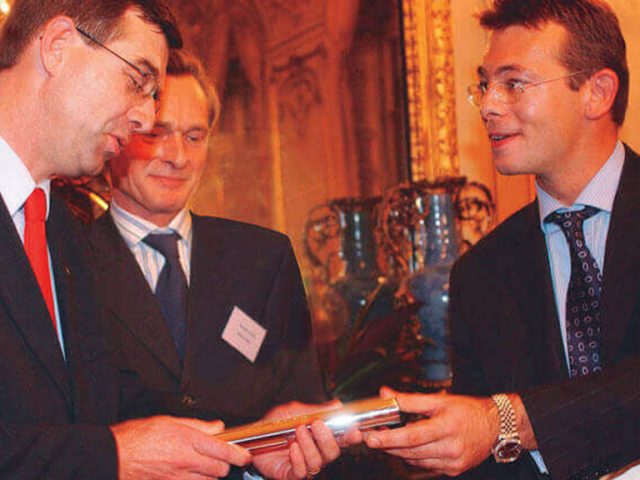
On November 28, 2002, Christophe Bonduelle, Chairman and CEO of the group, was awarded the "Génération Éponyme" prize at the French Senate. "While it takes money to build brand awareness, it takes time to build brand values. In a family, time is called generations (...). Our greatest asset is intangible: it's our family name, which has become a brand."
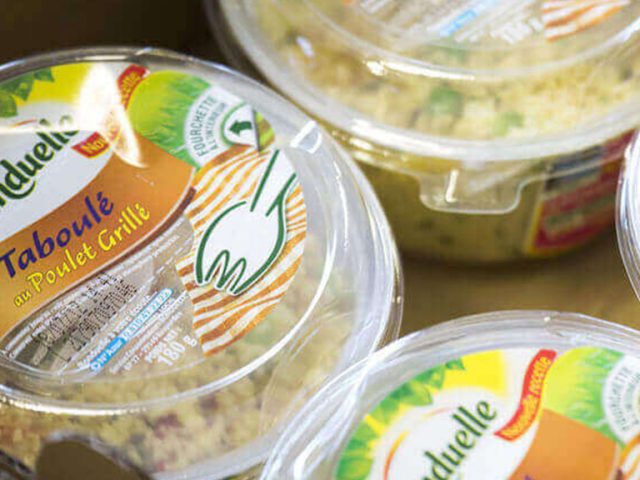
The Bonduelle group created its Catering subsidiary with the acquisition of the Breton company Michel Caugant and its two plants in Finistère.
In Russia, the groundbreaking ceremony for the Krasnodar plant was celebrated, while in Germany, Bonduelle officially inaugurated a new fourth range salad plant. In France, the group prepared the details of the monohull program for the 2004 Vendée Globe Challenge…

The group's commitment has never been more concrete than with the creation of the Louis Bonduelle Foundation, whose mission is to bring about lasting changes in eating behavior, making vegetables and their benefits the core component of its efforts. Its goals are to inform the various audiences, take action in the field and support research in the medical, sociological and agronomic fields.
The Louis Bonduelle Foundation set itself the mission, in an international setting, of bringing about lasting changes in food behaviors by contributing tangibly to every way in which we can bring vegetables into people's daily lives in a manner that is useful, realistic and original.
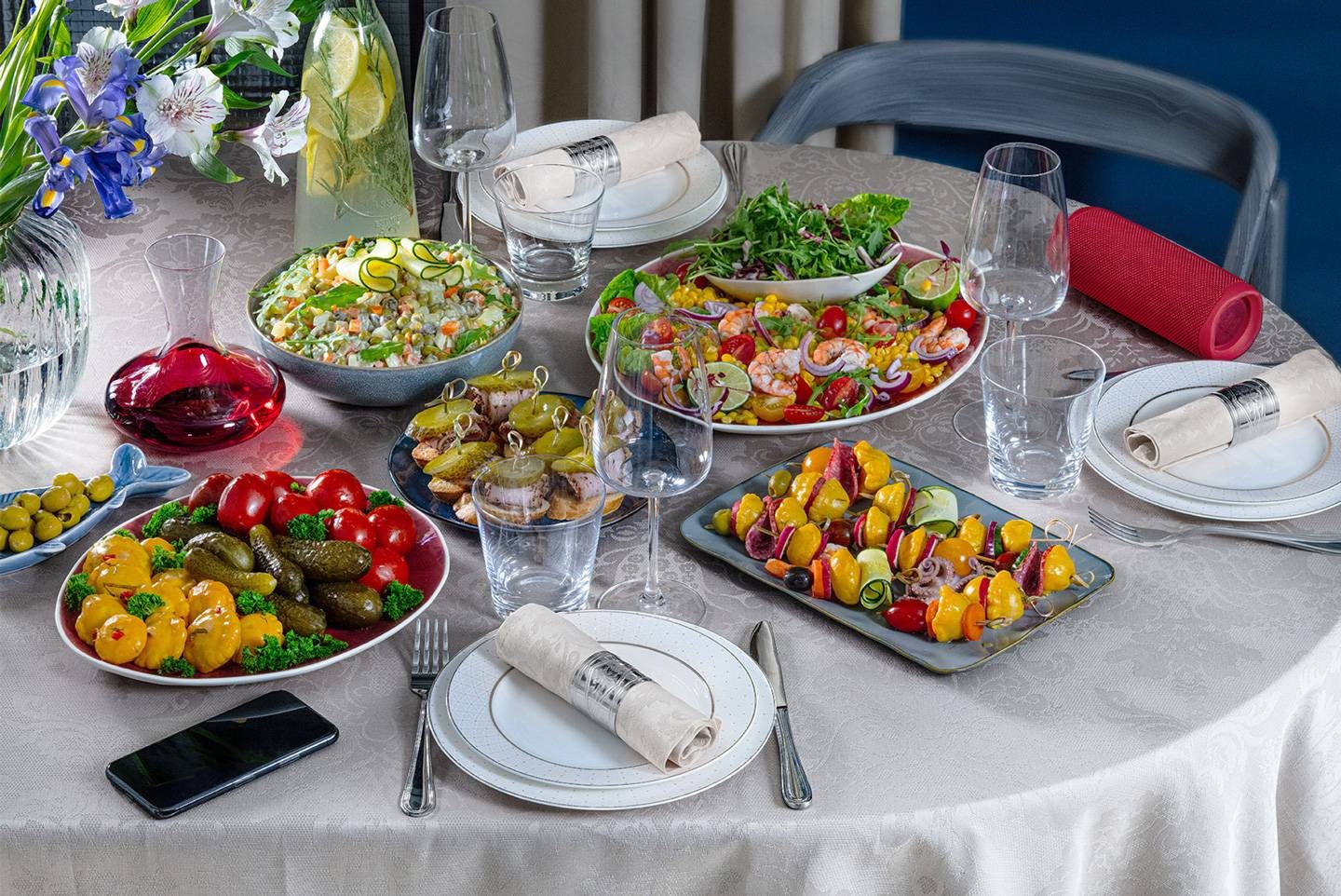
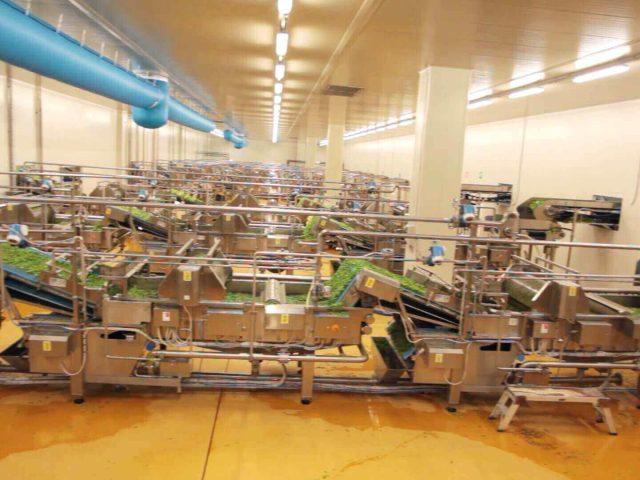
In Spain, the Ardo and Bonduelle groups, respectively the leader and number two in frozen vegetable production in Europe, created an industrial joint venture in 2011 to supply the Spanish and Portuguese markets with frozen vegetables, including the Findus brand, with which they signed an exclusive manufacturing agreement.
The agreement between Bonduelle and Ardo included the creation of a joint venture in Spain combining the production sites of Benimodo (Bonduelle) and the packaging and storage site of Marcilla (Ardo).
In Italy, Bonduelle inaugurated the San Paolo d'Argon plant, the largest production site for bagged green salads. In Hungary and Russia, Bonduelle took control of the assets of Kelet Food and the Cecab Group. In the US, Bonduelle acquired three flash freezing plants and a packaging site from the Allens Group.
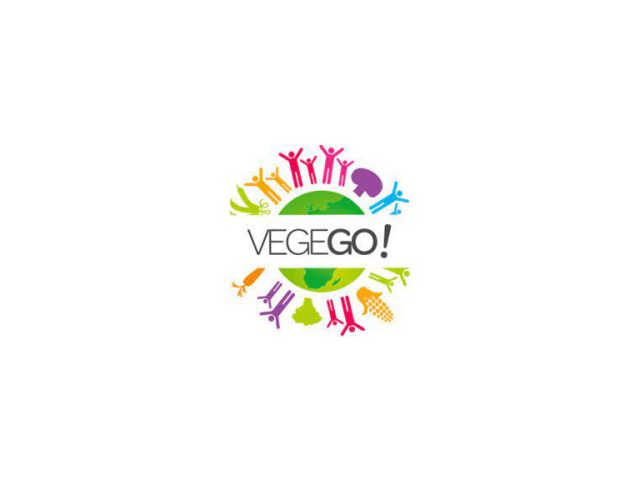
To mark its 160th anniversary, Bonduelle unveiled the VEGEGO project, a detailed roadmap that will enable the group to become the benchmark for good living through plant-based food (by 2025). At the same time, Bonduelle launched its website, which is 100% dedicated to Sustainable Development.
Aligned with the Group's CSR approach, the process of dialog with stakeholders (internal and external) began to expand internationally. That same year, in France, the Bonduelle Chair within the Edhec Group was created. The goal was to contribute to marketing research and education.
Strategically, Bonduelle was reorganized around two geographic areas – Europe and the rest of the world – and four business units.
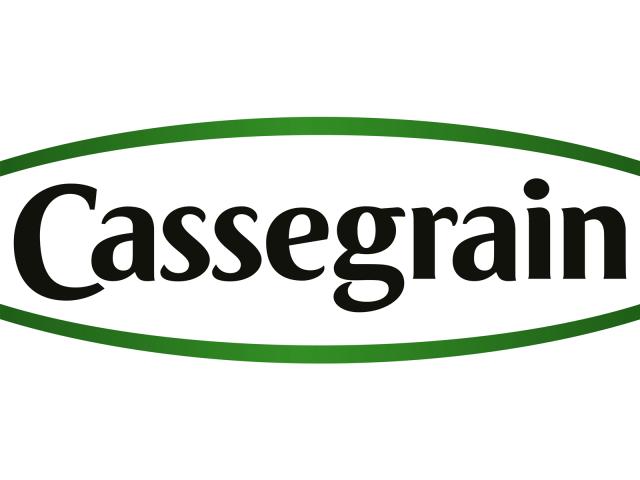
In September, Cassegrain launched on the Food Service Market. The brand offered two reworked and more gourmet recipes, Eggplant Confit and Ratatouille à la Provençale, in a "delicatessen" format to make chefs' lives easier.
That same year, the Louis Bonduelle Foundation celebrated its 10th anniversary. Since its creation in 2004, 195 projects and local initiatives have received financial support from the Foundation.
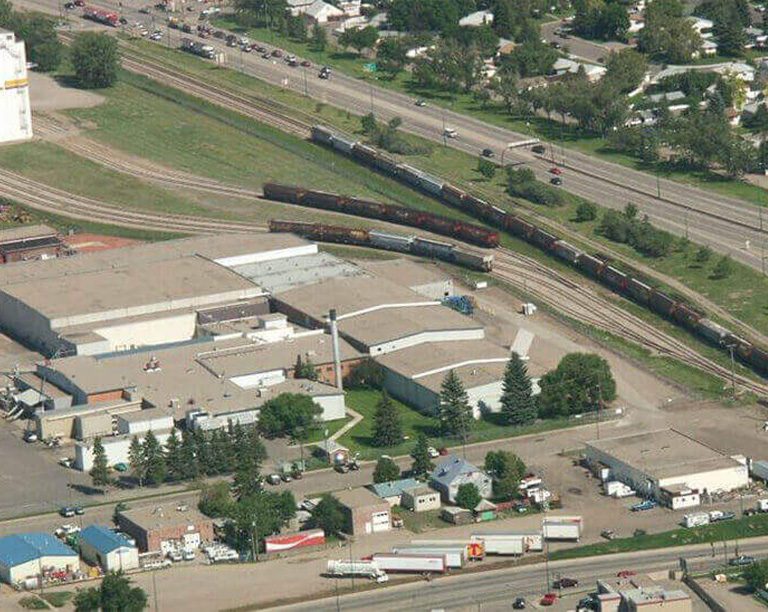
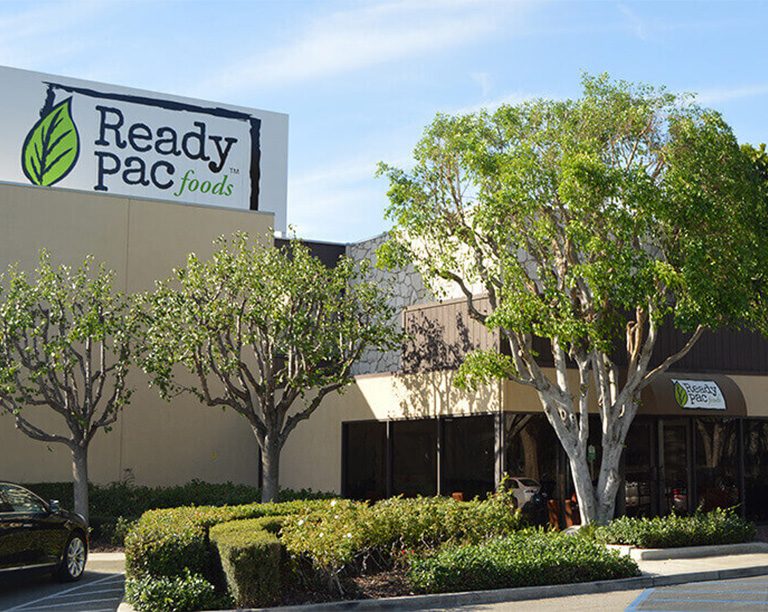
The Bonduelle Group strengthened its position in North America through the acquisition of a unit in Lethbridge, Alberta. This strategic base with a capacity of 15,000 tons sits 100 km from the US border. This unit will enable Bonduelle to achieve logistical synergies, expand commercially and save nearly 1,180 tons of CO2.
Bonduelle entered the US fresh produce market with the acquisition of Ready Pac Foods, a key step in the strategic ambition of Bonduelle VegeGo! 2025. This leader in single-serve salads in the US, with a nearly 85% market share in 2017, brought 3,500 new employees and four production facilities located in Irwindale (CA), Jackson (GA), Florence (NJ) and Swedesboro (NJ) to the group.
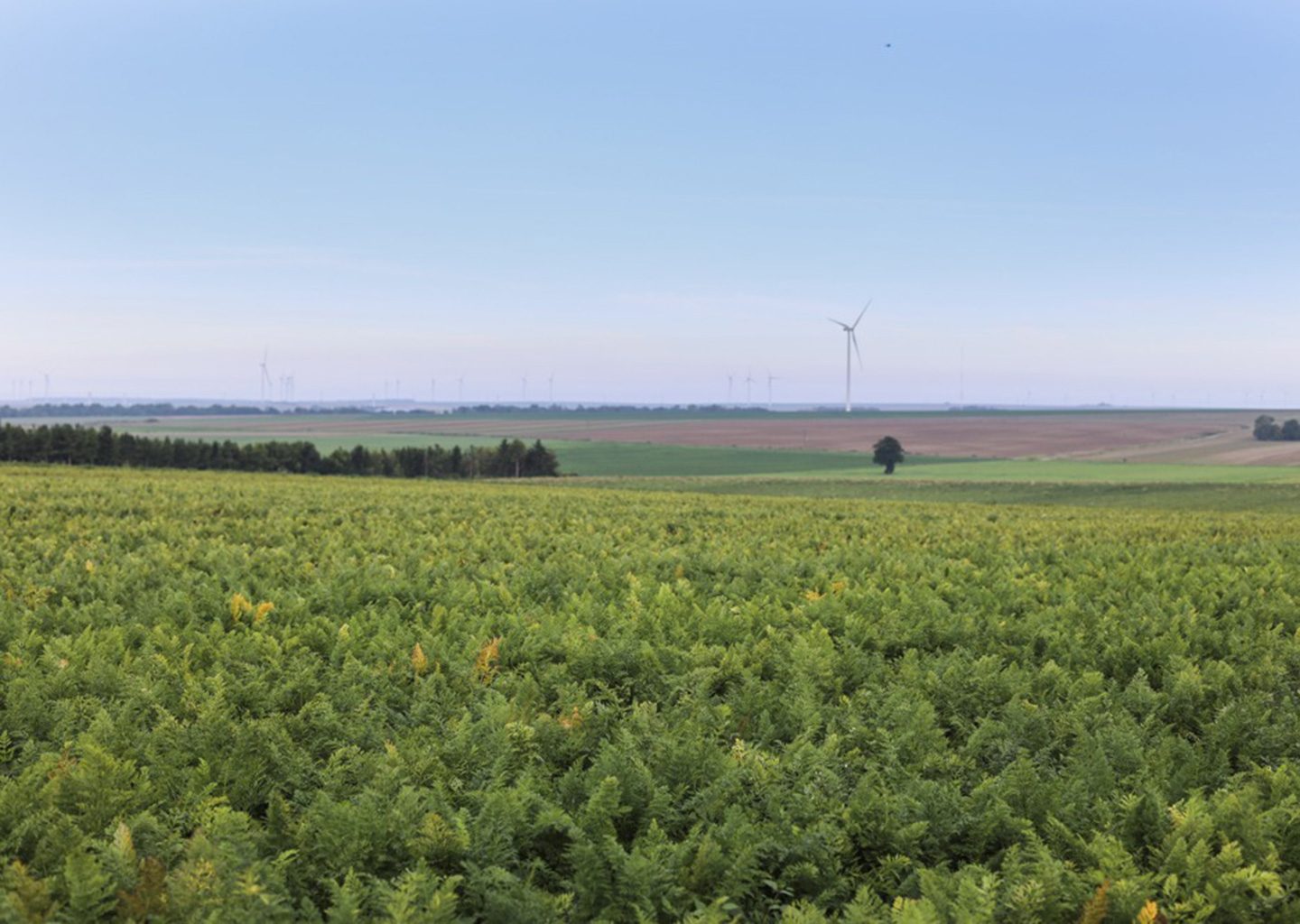

Sale of 65% of the Bonduelle Americas Long Life (BALL) business unit to the institutional investors Fonds de solidarité (FTQ) and Caisse de dépôt et placement du Québec (CDPQ). BALL is dedicated to the processing and commercializing of canned and frozen vegetables in the U.S. and Canada for the retail and foodservice markets, primarily for retail and foodservice distribution, under private label, third-party brands and its own brands. This partnership allows Bonduelle to focus on its core strategic priorities to become a leader in the vegetable industry. It is intended to enable the group to continue to deploy its activities, particularly with brands, in line with its ambition of sustainable growth with positive impact.
